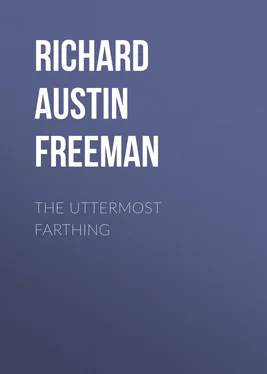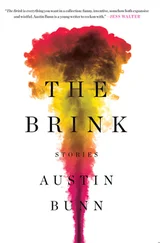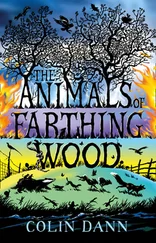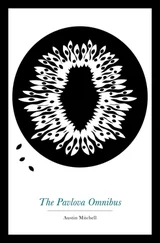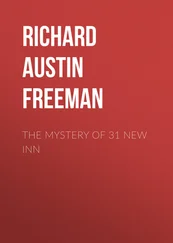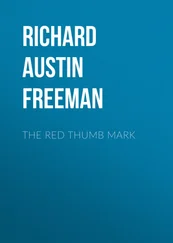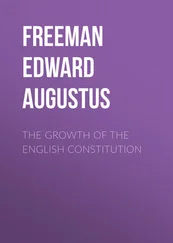Richard Austin Freeman - The Uttermost Farthing
Здесь есть возможность читать онлайн «Richard Austin Freeman - The Uttermost Farthing» — ознакомительный отрывок электронной книги совершенно бесплатно, а после прочтения отрывка купить полную версию. В некоторых случаях можно слушать аудио, скачать через торрент в формате fb2 и присутствует краткое содержание. Жанр: foreign_prose, Классический детектив, foreign_detective, foreign_antique, на английском языке. Описание произведения, (предисловие) а так же отзывы посетителей доступны на портале библиотеки ЛибКат.
- Название:The Uttermost Farthing
- Автор:
- Жанр:
- Год:неизвестен
- ISBN:нет данных
- Рейтинг книги:3 / 5. Голосов: 1
-
Избранное:Добавить в избранное
- Отзывы:
-
Ваша оценка:
- 60
- 1
- 2
- 3
- 4
- 5
The Uttermost Farthing: краткое содержание, описание и аннотация
Предлагаем к чтению аннотацию, описание, краткое содержание или предисловие (зависит от того, что написал сам автор книги «The Uttermost Farthing»). Если вы не нашли необходимую информацию о книге — напишите в комментариях, мы постараемся отыскать её.
The Uttermost Farthing — читать онлайн ознакомительный отрывок
Ниже представлен текст книги, разбитый по страницам. Система сохранения места последней прочитанной страницы, позволяет с удобством читать онлайн бесплатно книгу «The Uttermost Farthing», без необходимости каждый раз заново искать на чём Вы остановились. Поставьте закладку, и сможете в любой момент перейти на страницу, на которой закончили чтение.
Интервал:
Закладка:
"That made him furious. He came at me like a wild beast, with his mouth open and his armed fist flourished aloft as if he would annihilate me. I tried to deal with him by the methods of Mr. Slimy Cohen, but it was useless. He was no boxer and he had a knuckle-duster. Consequently we grabbed one another like a pair of monkeys and sought to inflict unorthodox injuries. He struggled and writhed and growled and kicked and even tried to bite; while I kept, as far as I could, control of his wrists and waited my opportunity. It was a most undignified affair. We staggered to and fro, clawing at one another; we gyrated round the room in a wild, unseemly waltz; we knocked over the chairs, we bumped against the table, we banged each other's heads against the walls; and all the time, as my adversary growled and showed his teeth like a savage dog, I was sensible of a strange feeling of physical enjoyment such as one might experience in some strenuous game. I seemed to have acquired a new and unfamiliar personality.
"But the knuckle-duster was a complication; for it was his right hand that I had to watch; and yet I could not afford to free for an instant his left, armed as it was with that shabbiest of weapons. Hence I hung on to his wrists while he struggled to wrench them free, and we pulled one another backwards and forwards and round and round in the most absurd and amateurish manner, each trying to trip the other up and failing at every attempt. At last, in the course of our gyrations, we bumped through the open door into the passage leading to the museum; and here we came down together with a crash that shook the house.
"As ill luck would have it, I was underneath; but, in spite of the shock of the fall, I still managed to keep hold of his wrists, though I had some trouble to prevent him from biting my hands and face. So our position was substantially unchanged, and we were still wriggling chaotically when a hasty step was heard descending the stairs. The burglar paused for an instant to listen and then, with a sudden effort, wrenched away his right hand, which flew to his hip-pocket and came out grasping a small revolver. Instantly I struck up with my left and caught him a smart blow under the chin, which dislodged him; and as he rolled over there was a flash and a report, accompanied by the shattering of glass and followed immediately by the slamming of the street door. I let go his left hand, and, rising to my knees, grabbed the revolver with my own left, while, with my right, I whisked out the concussor and aimed a vigorous blow at the top of his head. The padded weight came down without a sound—excepting the click of his teeth—and the effect was instantaneous. I rose, breathing quickly and eminently satisfied with the efficiency of my implement until I noticed that the unconscious man was bleeding slightly from the ear; which told me that I had struck too hard and fractured the base of the skull.
"However, my immediate purpose was to ascertain whether this was or was not the man whom I wanted. In the passage it was too dark to see either his finger-tips or the minute texture of his hair; but my candle-lamp, with its parabolic reflector, would give ample light. I ran through into the museum, where it was still burning, and, catching it up, ran back with it; but I had barely reached the prostrate figure when I heard someone noisily opening the street door with a latch-key. The charwoman had returned, no doubt, with the police.
"I am rather obscure as to what I meant to do. I think I had no definitely-formed intentions but acted more or less automatically, impelled by the desire to identify the burglar. What I did was to close the museum door very quietly, with the aid of the key, unlock the dining-room door and open it.
"A police sergeant, a constable and a plain-clothes officer entered and the charwoman lurked in the dark background.
"'Have they got away?' the sergeant demanded.
"'There was only one,' I said.
"At this the officers bustled away and I heard them descending to the basement. The charwoman came in and looked gloatingly at my battered countenance, which bore memorials of every projecting corner of the room.
"'It's a pity you come down, sir,' said she. 'You might have been murdered same as what your poor lady was. It's better to let them sort of people alone. That's what I say. Let 'em alone and they'll go home, as the sayin' is.'
"There was considerable truth in these observations, especially the last. I acknowledged it vaguely, while the woman cast fascinated glances round the disordered room. Then two of the officers returned and took up the enquiry to an accompaniment of distant police whistles from the back of the house.
"'I needn't ask if you saw the man,' said the plain-clothes officer, with a faint grin.
"'No, you're right,' said the sergeant. 'He set upon you properly, sir. Seems to have been a lively party.' He glanced round the room and added: 'Fired a pistol, too, your housekeeper tells me.'
"I nodded at the shattered mirror but made no comment, and the officer, remarking that I 'seemed a bit shaken up,' proceeded with his investigations. I watched the two men listlessly. I was not much interested in them. I was thinking of the man on the other side of the museum door and wondering if he had ringed hair.
"Presently the plain-clothes officer made a discovery. 'Hallo,' said he, 'here's a carpet bag.' He drew it out from under the table and hoisted it up under the gaslight to examine it; and then he burst into a loud and cheerful laugh.
"'What's up?' said the sergeant.
"'Why, it's Jimmy Archer's bag.'
"'No!'
"'Fact. He showed it to me himself. It was given to him by the 'Discharged Prisoners' Aid Society' to carry his tools in. Ha! Ha! O Lord!'
"The sergeant examined the bag with an appreciative grin, which broadened as his colleague lifted out a brace, a pad of bits, a folding jimmy and a few other trifles. I made a mental note of the burglar's name, and then my interest languished again. The two officers looked over the room together, tried the museum door and noted that it had not been tampered with; turned over the plate and admonished me on the folly of leaving it so accessible; and finally departed with the promise to bring a detective-inspector in the morning, and meanwhile to leave a constable to guard the house.
"I would gladly have dispensed with that constable, especially as he settled himself in the dining-room and seemed disposed to converse, which I was not. His presence shut me off from the museum. I could not open the door, for the burglar was lying just inside. It was extremely annoying. I wanted to make sure that the man was really dead, and, especially, I wanted to examine his hair and to compare his finger-prints with the set that I had in the museum. However, it could not be helped. Eventually I took my candle-lamp from the sideboard and went up to bed, leaving the constable seated in the easy-chair with a box of cigars, a decanter of whiskey and a siphon of Apollinaris at his elbow.
"I remained awake a long time cogitating on the situation. Was the man whom I had captured the right man? Had I accomplished my task, and was I now at liberty to 'determine,' as the lawyers say, the lease of my ruined life? That was a question which the morning light would answer; and meanwhile one thing was clear: I had fairly committed myself to the disposal of the dead burglar. I could not produce the body now; I should have to get rid of it as best I could.
"Of course, the problem presented no difficulty. There was a fire-clay furnace in the laboratory in which I had been accustomed to consume the bulky refuse of my preparations. A hundredweight or so of anthracite would turn the body into undistinguishable ash; and yet—well, it seemed a wasteful thing to do. I have always been rather opposed to cremation, to the wanton destruction of valuable anatomical material. And now I was actually proposing, myself, to practice that which I had so strongly deprecated. I reflected. Here was a specimen delivered at my very door, nay, into the very precincts of my laboratory. Why should I destroy it? Could I not turn it to some useful account in the advancement of science?
Читать дальшеИнтервал:
Закладка:
Похожие книги на «The Uttermost Farthing»
Представляем Вашему вниманию похожие книги на «The Uttermost Farthing» списком для выбора. Мы отобрали схожую по названию и смыслу литературу в надежде предоставить читателям больше вариантов отыскать новые, интересные, ещё непрочитанные произведения.
Обсуждение, отзывы о книге «The Uttermost Farthing» и просто собственные мнения читателей. Оставьте ваши комментарии, напишите, что Вы думаете о произведении, его смысле или главных героях. Укажите что конкретно понравилось, а что нет, и почему Вы так считаете.
